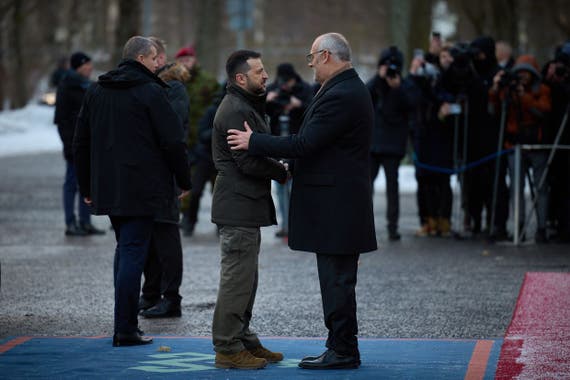Estonian president: Ukraine's right to attack military targets in Russia 'entirely legitimate'
During a meeting with Ukrainian Prime Minister Denys Shmyhal in Tallinn on April 3, Estonian President Alar Karis reaffirmed support for Ukraine's attacks on military targets in Russia, stating that it was "perfectly legitimate for the Ukrainian forces to destroy infrastructure critical to the Russian army."




Add comment